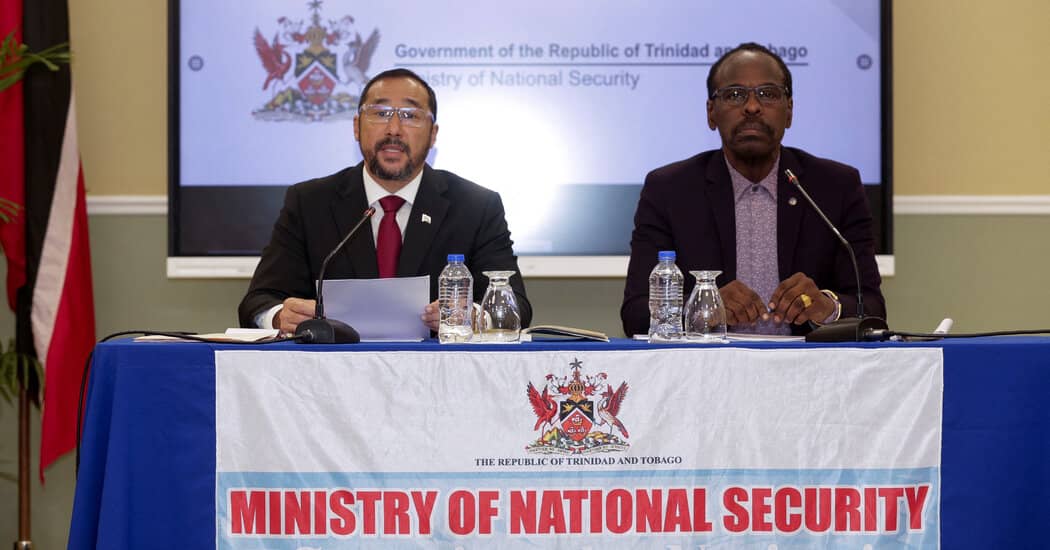To curb gang killings and a rise in homicides, the measure empowers the military to make arrests and allows the authorities to enter suspects’ homes without warrants and deny them bail.
Frances Robles and
Prior Beharry reported from Port of Spain, Trinidad and Tobago.
The government of Trinidad and Tobago, facing an alarming rise in violence, including retaliatory gang killings, on Monday declared a state of emergency. The measure empowers the military to make arrests and allows the authorities to enter suspects’ homes without warrants and deny them bail.
The state of emergency in the Caribbean country, the first for crime in more than a decade, was announced by the acting attorney general, Stuart Young, at a news conference in Port of Spain, the capital. It comes as the government has been increasingly criticized for failing to stop a wave of gang-related killings. The government reported 623 homicides so far this year in a country of 1.4 million. Last year, the murder rate was just below Haiti’s.
The national security minister, Fitzgerald Hinds, who also attended the news conference, said the killings had become an epidemic and public health concern. The police responded to 33 double, eight triple, four quadruple and one quintuple homicide this year, he added.
No curfew will be set during the state of emergency, nor will people’s movements be restricted, Mr. Young said, unlike during the Covid-19 pandemic, as the government wanted to minimize the effects on economic activity. But people suspected of crimes can be stopped and searched by the police or army soldiers, he added.
The Caribbean nation has struggled with the presence of criminal groups for more than 25 years, but the past decade has seen a surge in the escalation of violence by street gangs, said Alex Papadovassilakis, an investigator for Insight Crime, an organized- crime research group with main offices in Washington and Medellín, Colombia.
Experts estimate that there are 186 gangs with more than 1,750 members in Trinidad and Tobago.
“We’re not talking sophisticated gangs; we’re talking small and deeply territorial street gangs that engaged in mostly street level drug dealing, arms trafficking and other criminal activities,” Mr. Papadovassilakis said in a telephone interview. “They are extremely violent.”
We are having trouble retrieving the article content.
Please enable JavaScript in your browser settings.
Thank you for your patience while we verify access. If you are in Reader mode please exit and your Times account, or for all of The Times.
Thank you for your patience while we verify access.
Want all of The Times? .
Source: www.nytimes.com
